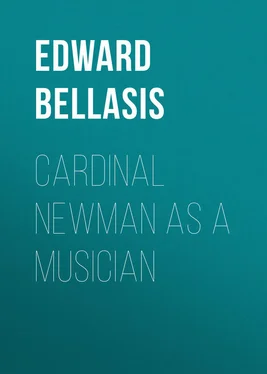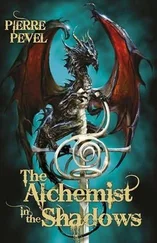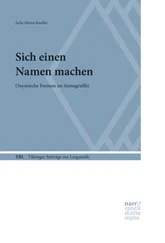Edward Bellasis - Cardinal Newman as a Musician
Здесь есть возможность читать онлайн «Edward Bellasis - Cardinal Newman as a Musician» — ознакомительный отрывок электронной книги совершенно бесплатно, а после прочтения отрывка купить полную версию. В некоторых случаях можно слушать аудио, скачать через торрент в формате fb2 и присутствует краткое содержание. ISBN: , Жанр: foreign_antique, foreign_prose, на английском языке. Описание произведения, (предисловие) а так же отзывы посетителей доступны на портале библиотеки ЛибКат.
- Название:Cardinal Newman as a Musician
- Автор:
- Жанр:
- Год:неизвестен
- ISBN:http://www.gutenberg.org/ebooks/26427
- Рейтинг книги:5 / 5. Голосов: 1
-
Избранное:Добавить в избранное
- Отзывы:
-
Ваша оценка:
- 100
- 1
- 2
- 3
- 4
- 5
Cardinal Newman as a Musician: краткое содержание, описание и аннотация
Предлагаем к чтению аннотацию, описание, краткое содержание или предисловие (зависит от того, что написал сам автор книги «Cardinal Newman as a Musician»). Если вы не нашли необходимую информацию о книге — напишите в комментариях, мы постараемся отыскать её.
Cardinal Newman as a Musician — читать онлайн ознакомительный отрывок
Ниже представлен текст книги, разбитый по страницам. Система сохранения места последней прочитанной страницы, позволяет с удобством читать онлайн бесплатно книгу «Cardinal Newman as a Musician», без необходимости каждый раз заново искать на чём Вы остановились. Поставьте закладку, и сможете в любой момент перейти на страницу, на которой закончили чтение.
Интервал:
Закладка:
Конец ознакомительного фрагмента.
Текст предоставлен ООО «ЛитРес».
Прочитайте эту книгу целиком, купив полную легальную версию на ЛитРес.
Безопасно оплатить книгу можно банковской картой Visa, MasterCard, Maestro, со счета мобильного телефона, с платежного терминала, в салоне МТС или Связной, через PayPal, WebMoney, Яндекс.Деньги, QIWI Кошелек, бонусными картами или другим удобным Вам способом.
1
Cardinal Capecelatro's Life of St. Philip Neri , translated by the Rev. Thomas Alder Pope, of the Oratory, vol. ii. p. 83.
2
Discourses to Mixed Congregations , p. 297, Fourth Edit. 1871.
3
Idea of a University , dis. iv. p. 80, Sixth Edit. 1886.
4
Oxford University Sermons , p. 346, Edit. 1884.
5
Idea , dis. ix. 230. Dr. Chalmers writes to Blanco White: "You speak in your letter of the relief you have found in music… I am no musician and want a good ear, and yet I am conscious of a power in music which I want words to describe. It touches chords, reaches depths in the soul which lie beyond all other influences… Nothing in my experience is more mysterious, more inexplicable." (Blanco White's Life and Correspondence , edited by Thom, 1845, vol. iii. p. 195.)
6
Oxford University Sermons , pp. 346, 347. Writing to her brother about the passage on music, partly cited above, beginning: "There are seven notes in the scale, make them fourteen; yet what a slender outfit for so vast an enterprise! What science brings so much out of so little! Out of what poor element does some great master in it create his new world!" Mrs. J. Mozley says, "We are pleased at your tribute to music, but what do you mean by fourteen notes? Do you mean the twelve semitones, as some suggest? I am indignant at the idea. I think you knew what you were saying. Please tell me when you write." (Mozley, Corr. ii. p. 411.) He replies: "I had already been both amused and provoked to find my gross blunder about the 'fourteen.' But do not, pray, suppose I doubled the notes for semitones, though it looks very like it. The truth is, I had a most stupid idea in my head there were fifteen semi tones, and I took off one for the octave. On reading it over when published, I saw the absurdity. I have a great dislike to publishing hot bread, and this is one proof of the inconvenience." ( Ibid. ) The Second Edition has "thirteen notes," which is correct, if the octave be included, but later editions go back to "fourteen."
7
Pope, Capecelatro , ii. 82.
8
Idea , dis. vi. p. 144.
9
Ibid.
10
Mozley, Correspondence , i. p. 52.
11
Ibid.
12
Mozley, Corr. i. p. 71. On one occasion (between 1860-70) two Oratory boys went up to his room to make a complaint, and hearing only "fiddling" the other side of the door, made bold to enter, but their visit was ill-timed. "Every Englishman's house is his castle," said the Father, and he "went on fiddling." This term, "Father," is what every one in the house called Dr. Newman, and correctly, as being Father Superior of the Oratory. It is the name (it need scarcely be added) that he liked to be called by.
13
Ibid. i. p. 104: Provost Hawkins, at this time a Fellow, and ultimately succeeding Copleston, had no love for music, and rather despised such a thing as being "a sign of an effeminate (or frivolous) mind." He used one or other of these terms, or both .
14
Mozley, Corr. ii. p. 22.
15
Ibid. i. p. 146.
16
She writes in July, 1843: "Now I do so wish, John, you would pay us a visit. I will practise hard to get up some Beethoven." (Mozley, Corr. ii. 415.)
17
With this difference, however, Philomel had not to learn her regrets: she knew them already.
18
Reminiscences , i. pp. 247, 248, Second Edition, 1882. Of statements in this work the Cardinal humorously observed: "When a thing won't stand on three legs, Tom supplies a fourth." The Father played the viola a good deal, which is larger than the violin; hence Mr. Mozley's "different instruments," &c.
19
One of the boys was once lent this aged green baize bag, and losing it, never heard the end of it. Whenever there was question of lending him anything else, the Father would say very quietly: "I think I lent you a green baize bag." Nor would he allow that it was lost: "You mean mislaid."
20
A friend remembers Father Whitty, S.J., bringing to Maryvale Mr. McCarthy and Mr. M'Quoin, young converts and subsequently priests (the former is still living in Jersey). Both played the violin, so an instrumental quartet was essayed (a rare event in the community), the executants being the two named, and Fathers Newman and Bowles (violoncello).
21
Father Lockhart, in the Paternoster Review for September, 1890.
22
Loss and Gain , p. 284, Sixth Edition, 1874.
23
The Dream of Gerontius.
24
Essays , i. 7, Fifth Edit.
25
Mozley, Corr. ii. 67.
26
Mozley, Corr. i. 19.
27
The late Canon Mozley said that Chopin was "certainly a Manichean; he did not believe in God; he believed in some spirit, not in God;" while "the moral grandeur of Beethoven's genius was always present to him, as, with less force, was also Mendelssohn's: 'They believed in God – their music showed it.'" ( Letters , p. 353, Edit. 1885.)
28
Idea , dis. iv. 80, 81. In a Bull of 1749, Pope Benedict the Fourteenth lays great stress on the words being heard and understood, "Curandum est ut verba quæ cantantur plane perfecteque intelligantur," and this is best secured in the unaccompanied chant. In an interesting article of the Dublin Review (New Series, vol. ii. January-April, 1864), the effect of official pronouncements on the questions affecting the plain chant and concerted music is thus succinctly summed up: "1. That music, properly so called, may be admitted as well as plain chant. 2. That the music of the church is to possess a certain gravity and to minister to devotion. 3. That instrumental music may be allowed, under certain restrictions."
Интервал:
Закладка:
Похожие книги на «Cardinal Newman as a Musician»
Представляем Вашему вниманию похожие книги на «Cardinal Newman as a Musician» списком для выбора. Мы отобрали схожую по названию и смыслу литературу в надежде предоставить читателям больше вариантов отыскать новые, интересные, ещё непрочитанные произведения.
Обсуждение, отзывы о книге «Cardinal Newman as a Musician» и просто собственные мнения читателей. Оставьте ваши комментарии, напишите, что Вы думаете о произведении, его смысле или главных героях. Укажите что конкретно понравилось, а что нет, и почему Вы так считаете.












